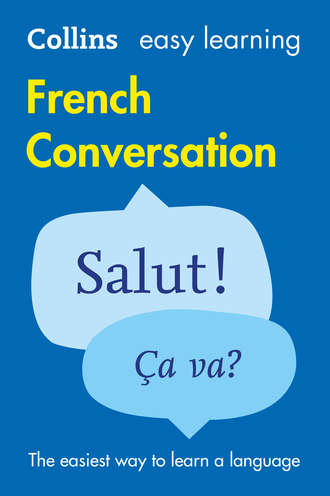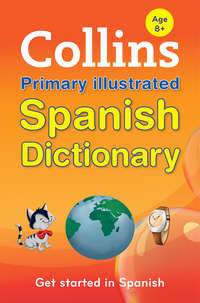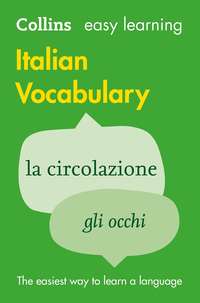
Полная версия
Easy Learning French Conversation
Remember to say merci or merci beaucoup when you get the information. If someone hasn’t been able to help you, you can still thank them by saying merci quand même (thanks all the same).
If you want to ask a general question in French, you can use C’est…? or Est-ce que c’est…? (Is it…?).
Is it…?
C’est par là?Is it this way?C’est près d’ici?Is it near here?Est-ce que c’est loin, s’il vous plaît?Is it far?Est-ce que c’est le train pour Angoulême?Is this the train for Angoulême?Est-ce que c’est le bon arrêt pour le musée, s’il vous plaît?Is this the right stop for the museum?Est-ce que cette place est libre?Is this seat free?Is there…?
Il y a une station-service près d’ici, s’il vous plaît?Is there a petrol station near here, please?Il y a une station de métro près d’ici?Is there an underground station near here?Il y a des restaurants près d’ici?Are there any restaurants around here?Est-ce qu’il y a des tarifs étudiants?Is there a student discount?BON À SAVOIR!
You can see that both there is and there are are il y a in French.
In order to get more specific information, you may want to ask, for example, Où…? (Where…?), Quel…? (Which…?), or À quelle heure…? (What time…?).
Where…?
Où est la consigne?Where’s the left-luggage office?Où est la station de taxis la plus proche, s’il vous plaît?Where’s the nearest taxi rank, please?Où sont les toilettes?Where are the public toilets?Which…?
Je dois prendre quelle ligne, s’il vous plaît?Which line do I take, please?Quels bus vont en centre-ville?Which buses go to the town centre?De quel quai part le train pour Sarlat?Which platform does the train for Sarlat leave from?Excusez-moi, c’est quelle direction pour Brest, s’il vous plaît?Excuse me, which way do I go for Brest, please?C’est quelle direction pour aller au Stade de France, s’il vous plaît?Which way is it to the Stade de France, please?What time…?
On embarque à quelle heure?What time are we boarding?Le train part à quelle heure?What time does the train leave?À quelle heure est-ce qu’on arrive à Bruxelles?What time do we get to Brussels?Le départ est bien à sept heures?The departure is at seven, isn’t it?Le bus arrive bien à neuf heures trente?The bus arrives at nine thirty, doesn’t it?BON À SAVOIR!
When you’re not sure about something, you can ask for confirmation by adding bien after the verb in your question.
If you want to ask how often something happens, how long it takes or how much it costs, you can use a phrase with combien.
How often…?
Il y a un bus pour Genève tous les combien?How often is there a bus for Geneva?Il y a un vol pour Londres tous les combien?How often is there a flight to London?Il faut faire le plein tous les combien de kilomètres?How often do you have to fill up the tank?How long…?
Ça prend combien de temps?How long does it take?Ça prend combien de temps pour aller à la gare?How long does it take to get to the railway station?Ça prend combien de temps pour aller de Lille à Paris?How long does it take to get from Lille to Paris?Le voyage prend combien de temps?How long does the journey take?On va mettre combien de temps pour y aller?How long will it take us to get there?How much is…?
Combien coûte un ticket pour Lyon?How much is a ticket to Lyon?Combien coûte le péage entre Paris et Orléans?How much is the motorway toll between Paris and Orléans?Combien est-ce que ça coûte de laisser une valise à la consigne?How much does it cost to leave a case in left-luggage?Combien est-ce que ça coûterait de louer une voiture pour deux jours?How much would it cost to hire a car for two days?Use Est-ce que je peux…? (Can I…?) or Est-ce qu’on peut…? (Can we…?) to ask whether you can do something. These are from the verb pouvoir. For more information on pouvoir, see here.
Can I…?
Est-ce que je peux payer par carte bleue?Can I pay by debit card?Est-ce que je peux louer une voiture pour la journée?Can I hire a car for the day?Est-ce qu’on peut fumer dans le train?Is smoking allowed on the train?Est-ce qu’on peut y aller à pied?Can you walk there?Est-ce qu’il est possible de changer son billet par Internet?Can you change your ticket online?ASKING FOR THINGS
When asking for something, you can use Est-ce que je peux avoir…? (Can I have…?) or Est-ce que je pourrais avoir…? (Could I have…?). These come from the verb pouvoir. For more information on pouvoir, see here.
Can I have…?
Est-ce que je peux avoir un plan du métro, s’il vous plaît?Can I have a map of the underground, please?Est-ce que je peux avoir une carte à la semaine, s’il vous plaît?Can I have a weekly pass, please?Est-ce que je pourrais avoir les horaires des trains, s’il vous plaît?Could I have a train timetable, please?When you want to find out if something is available or if someone has something, use Est-ce que vous avez…? or Vous avez…? (Do you have…?). avez comes from the verb avoir. For more information on avoir, see here.
Do you have…?
Est-ce que vous avez les horaires des bus?Do you have any bus timetables?Vous avez un plan d’accès, s’il vous plaît?Do you have a map that shows how to get there, please?Vous avez des voitures plus petites en location?Do you have smaller cars to hire?Est-ce qu’il vous reste des places côté couloir?Do you have any aisle seats left?When you ask for something, you can simply name what you want, but make sure you finish your question with s’il vous plaît, or your request might sound rather like an order!
A…, please
Un aller simple, s’il vous plaît.A single, please.Une place côté fenêtre, s’il vous plaît.A window seat, please.Trois billets retours pour Montréal, s’il vous plaît.Three returns to Montreal, please.If you are asking someone if they can do something for you, you should use Est-ce que vous pouvez…? (Can you…?).
Can you…?
Est-ce que vous pouvez nous emmener à l’hôtel Saint-Antoine, s’il vous plaît?Can you take us to the Saint-Antoine hotel, please?Est-ce que vous pouvez me prévenir quand on arrivera à l’arrêt du musée?Can you tell me when we’re near the museum stop?Vous pouvez me déposer ici, s’il vous plaît?Can you drop me here, please?Vous pouvez nous montrer où ça se trouve sur la carte?Can you show us where it is on the map?Would you mind…?
Est-ce que ça vous dérangerait de m’écrire l’adresse?Would you mind writing down the address for me?Est-ce que ça vous dérangerait de me déposer à mon hôtel?Would you mind dropping me at my hotel?Est-ce que ça vous dérangerait de nous montrer où c’est?Would you mind showing us where it is?SAYING WHAT YOU LIKE, DISLIKE, PREFER
You will want to be able to discuss what you like and dislike with your French-speaking acquaintances. To say what you like, use j’aime bien (I like), which is not as strong as j’aime (I love). To say what you don’t like, just use je n’aime pas (I don’t like). These come from the verb aimer. For more information on aimer, see here.
I like…
J’aime bien ces routes de campagne.I like these country roads.J’aime bien voyager en train.I like travelling by train.J’aime beaucoup cette voiture.I like this car a lot.J’aime l’avion.I love flying.I don’t like…
Je n’aime pas les voitures automatiques.I don’t like automatics.Je n’aime pas conduire à droite.I don’t like driving on the right.Do you like…?
Tu aimes bien cette région?Do you like this area?Tu aimes bien voyager seul?Do you like travelling by yourself?Est-ce que vous aimez conduire de nuit?Do you like driving at night?Est-ce que vous aimez bien les voyages organisés?Do you like package tours?If you want to say what you prefer, use je préfère (I prefer) or je préférerais (I’d prefer). These come from the verb préférer. For more information on -er verbs like préférer, see here.
I prefer to…
Je préfère dormir à l’hôtel.I prefer to sleep in a hotel.Je préfère prendre l’autoroute.I prefer to take the motorway.Je préférerais ne pas laisser ma voiture ici.I’d prefer not to leave my car here.I’d rather…
J’aimerais mieux faire le voyage par beau temps.I’d rather make the journey in good weather.J’aimerais mieux être assise côté fenêtre.I’d rather sit next to the window.On aimerait mieux faire la route de jour.We’d rather drive in the daytime.LISTEN OUT FOR
Here are some key phrases you are likely to be hear when you’re travelling around.
Prochain arrêt:…Next stop:…Le train pour Nice part du quai numéro trois.The train for Nice leaves from platform three.Votre billet, s’il vous plaît.Ticket, please.Je peux m’asseoir ici?Do you mind if I sit here?Continuez tout droit jusqu’aux feux.Go straight on till you get to the traffic lights.Prenez la deuxième à gauche.Take the second turning on the left.C’est en face de la cathédrale.It’s opposite the cathedral.C’est tout près.It’s very near.On peut y aller à pied.It’s within walking distance.C’est à trois arrêts d’ici.It’s three stops from here.Lifestyle Tips
• If you’re behind the wheel of a car, be ready to produce your driving licence if asked for it by the police. If you’ve left it behind, you may well be fined. The police officer might ask you: votre permis de conduire, s’il vous plaît (your driving licence, please). French drivers also have to be able to produce their carte grise (car registration document) and their attestation d’assurance (car insurance certificate).
• Motorways are not free in France. When you go onto the motorway, you get a ticket de péage or ticket d’entrée. When you come off the motorway this will show how many kilometres you’ve driven and how much you have to pay.
• At motorway tolls, some toll booths are manned, some are automatic (using bank cards), and some are reserved for drivers using the télépéage system which makes it possible to pay the toll via a sensor inside the car (with monthly bills sent to your address). It is best to stay clear of these lanes which are marked with a yellow “T” sign, as the drivers equipped with such sensors don’t take kindly to tourists holding up their fast lane!
• Over the past years, covoiturage (car sharing) has become quite popular in France. It can be a cheap and convenient way of getting around, especially for short distances. There are many places where you can find offers for covoiturage, but local papers, and ad boards in shops are probably your best bet.
• If you’re asked to produce your titre de transport on the bus, the train or the underground, it means that you have to show your ticket to the inspector.
• Make sure you punch your ticket before you get on the train or bus. If you have forgotten to do so, it is advisable to go and see le contrôleur (the ticket inspector) as soon as possible or you might be fined.
• If you’re in a hurry, you can hop on the train and buy a ticket for a small amount extra directly from a ticket inspector - go and see him or her as soon as you’re on the train or you might be suspected of resquillage (fare-dodging).
• Queues tend to be informal in French-speaking countries. So if you’re trying to get to an information desk and don’t know if it’s your turn, just ask C’est à moi? or C’est mon tour? (Am I next?). If you want to let someone in before you, you can say après vous (after you).
Home from home
Dors bien! – Sleep well!
If you’re going to stay in a French-speaking country, the phrases in this unit will provide you with the language you need to help you find the sort of accommodation you want (hotel, hostel, self-catering accommodation or a flat to rent) and ensure that everything is to your satisfaction when you’re there. We’ll also give you a few tips on what the receptionist or your landlord or landlady may say to you.
ASKING FOR THINGS
To say what kind of accommodation you want in French, use je voudrais or je souhaite (I’d like). voudrais comes from the verb vouloir and souhaite comes from the verb souhaiter. For further information on vouloir and -er verbs like souhaiter, see here and here.
I’d like…
Je voudrais une chambre avec un balcon.I’d like a room with a balcony.Je voudrais réserver une chambre double pour deux nuits.I’d like to book a double room for two nights.On voudrait un dortoir de six personnes.We’d like a six-bed dorm.Je souhaite rester trois nuits.I’d like to stay three nights.Je souhaite louer votre gîte pendant deux semaines.I’d like to book your gîte for two weeks.je veux is a slightly more direct way of saying what you want.
I want…
Je veux un appartement bien éclairé.I want a well-lit flat.Je veux changer de chambre; celle que vous m’avez donnée est humide.I want to change rooms; the one you gave me is damp.Je veux qu’on me rembourse.I want a refund.On ne veut pas de chambre côté rue.We don’t want a room overlooking the road.Use je tiens à to say that you insist on something. tiens comes from the verb tenir.
I insist on…
Je tiens vraiment à avoir vue sur la mer.I absolutely insist on having a view of the sea.Je tiens à ne pas être dérangé.I insist on not being disturbed.On tient à être dans le centre-ville.We insist on staying in the centre of town.When you want to find out if something is available, use Est-ce que vous avez…? (Do you have…?) or Est-ce que vous auriez…? (Would you have…?). These come from the verb avoir. For more information on avoir, see here.
Do you have…?
Est-ce que vous avez des informations sur le logement?Do you have any information about accommodation?Est-ce que vous avez des chambres de libre?Have you got any rooms free?Vous avez Internet?Have you got internet access?Est-ce que vous auriez des serviettes, s’il vous plaît?Would you have any towels, please?Can I have…?
Est-ce que je peux avoir la clé de ma chambre, s’il vous plaît?Can I have the key to my room, please?Est-ce que je peux avoir un reçu, s’il vous plaît?Can I have a receipt, please?Est-ce qu’on peut avoir une liste des logements disponibles?Can we have a list of available accommodation?Est-ce que je pourrais avoir deux serviettes en plus?Could I have two more towels?If you are asking someone whether they can do something for you, use Est-ce que pouvez…? (Can you…?) and Est-ce que vous pourriez…? (Could you…?). They both come from the verb pouvoir. For more information on pouvoir, see here.
Can you…?
Est-ce que vous pouvez me confirmer la réservation par e-mail?Can you confirm the booking by email?Est-ce que vous pouvez m’appeler pour me réveiller à sept heures, s’il vous plaît?Can you give me an alarm call at seven o’clock, please?Est-ce que vous pourriez changer les serviettes, s’il vous plaît?Could you change the towels, please?Vous pourriez me montrer la chambre, s’il vous plaît?Could you show me the room, please?Would you mind…?
Est-ce que ça vous dérangerait de me montrer comment marche la cuisinière?Would you mind showing me how the cooker works?Est-ce que ça vous dérangerait de m’appeler un taxi?Would you mind calling a taxi for me?Ça vous dérangerait de monter mes valises à ma chambre?Would you mind taking my suitcases up to my room?TALKING ABOUT YOURSELF
When you are enquiring about somewhere to stay you will need to give information about yourself. Use je suis (I am) to talk about yourself and on est (we are) to include the people who are with you. These come from the verb être. For more information on être, see here.
I’m…
Je suis étudiante.I’m a student.Je suis canadien.I’m Canadian.Je suis du sud de l’Angleterre.I’m from the south of England.On est en vacances.We’re on holiday.Nous sommes les propriétaires.We’re the owners.My name is…
Je m’appelle Brian Gallagher.My name is Brian Gallagher.Je m’appelle Olivia Gauthier.My name is Olivia Gauthier.Je m’appelle Madame Smith. J’ai réservé une chambre double pour cette nuit.My name is Mrs Smith. I’ve booked a double room for tonight.Mon nom de famille c’est Morris…My surname is Morris……et mon prénom c’est Emma.…and my first name is Emma.Ça s’écrit M-O-R-R-I-S.It’s spelt M-O-R-R-I-S.BON À SAVOIR!
Remember that the French alphabet is pronounced differently from the English alphabet. For more information on how to say letters of the alphabet in French, see here.
ASKING FOR INFORMATION
When you want to obtain some information about your accommodation, an easy way to ask questions is just to put est-ce que before what you want to know. Alternatively, you can simply make your voice go up at the end of the sentence. This sounds more informal than using est-ce que.









